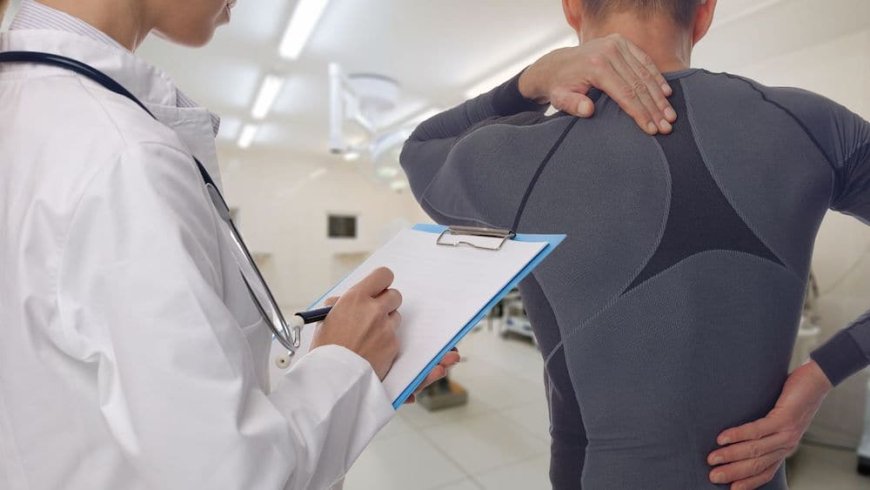The Essential Role of Sports Medicine Doctors in Athlete Recovery
Sports medicine doctors in Dubai step in, playing a crucial role in the recovery and long-term health of athletes.

In the dynamic world of sports, athletes consistently push their physical boundaries to achieve peak performance. This relentless pursuit of excellence often leads to injuries that can sideline even the most seasoned professionals.
It is here, amidst the pain and setbacks, that sports medicine doctors in Dubai step in, playing a crucial role in the recovery and long-term health of athletes. Their expertise is not only vital in treating injuries but also in preventing them and ensuring athletes can continue to compete at their best.
Understanding Sports Medicine
Sports medicine is a specialized field of healthcare that focuses on the physical well-being of athletes and active individuals. It involves a multidisciplinary approach, incorporating elements from orthopedic surgery, physical therapy, athletic training, nutrition, and psychology. Sports medicine doctors are trained to handle a wide range of issues, from acute injuries like fractures and sprains to chronic conditions such as tendonitis and stress fractures.
The Recovery Process
The journey from injury to full recovery is multifaceted, involving immediate care, rehabilitation, and prevention of future injuries. Sports medicine doctors are at the forefront of this process, providing comprehensive care that is tailored to the unique needs of each athlete.
Immediate Response and Diagnosis
The first step in an athlete's recovery process begins at the moment of injury. Sports medicine doctors are skilled in assessing the situation quickly and accurately, which is crucial for effective treatment. They use a variety of diagnostic tools, including X-rays, MRI scans, and ultrasound, to determine the extent of the injury and to develop an appropriate treatment plan.
Personalized Treatment Plans
Once the injury is diagnosed, sports medicine doctors work closely with the athlete to devise a personalized treatment plan. This plan may include medication for pain relief, surgery to repair damaged tissues, or non-invasive therapies such as ice, heat, and compression therapy. The choice of treatment depends on the severity of the injury and the future goals of the athlete.
Rehabilitation
Rehabilitation is perhaps the most critical phase of recovery, where the goal is to restore strength, flexibility, and endurance. Sports medicine doctors coordinate with physical therapists to create a rehabilitation program that suits the athlete’s specific needs. These programs often include exercises to improve mobility, strength training to rebuild muscle, and conditioning to prevent future injuries.
Mental and Emotional Support
Recovery from a sports injury isn't just a physical challenge; it's a mental and emotional battle as well. Sports medicine doctors play a vital role in providing psychological support to athletes. They help athletes deal with the frustration and depression that often accompany injuries and guide them through the process of setting realistic goals for their return to sport.
Injury Prevention
Beyond treatment and rehabilitation, sports medicine doctors also focus on injury prevention. They assess the athlete’s technique, equipment, and overall physical condition to identify potential risks. Educational sessions on proper warm-ups, cooldowns, and training practices are common strategies used to prevent injuries.
Nutritional Guidance
Nutrition plays a crucial role in an athlete’s performance and recovery. Sports medicine doctors often work with nutritionists to ensure that athletes are following diets that support their recovery goals. This includes maintaining a balanced intake of nutrients essential for tissue repair, inflammation reduction, and energy replenishment.
Ongoing Monitoring and Evaluation
Even after an athlete has returned to their sport, sports medicine doctors continue to monitor their health and performance. Regular check-ups help to ensure that the athlete is not only performing at their best but also staying injury-free. This ongoing evaluation often includes fitness assessments and biomechanical analysis to refine and adjust training regimens accordingly.
The Broader Impact
The influence of sports medicine doctors extends beyond individual athletes. By ensuring the health and performance of athletes, they contribute significantly to the success of teams and the broader sports community. Moreover, the principles and practices developed in sports medicine often find applications in broader healthcare, benefiting non-athletes and leading to innovations in injury treatment and prevention strategies across the board.
For instance, the integration of advanced treatments like exosome therapy in Dubai represents how sports medicine is embracing cutting-edge technologies to enhance tissue repair and recovery, benefiting athletes and the general population alike.
Wrapping Up
The role of sports medicine doctors is indispensable in the world of athletics. Their comprehensive approach to injury treatment, rehabilitation, and prevention ensures that athletes not only recover from their injuries but also excel in their sports with enhanced performance and reduced risk of future injuries. As sports continue to evolve, so too will the field of sports medicine, continually adapting new techniques and technologies to better serve the needs of athletes.
What's Your Reaction?




















